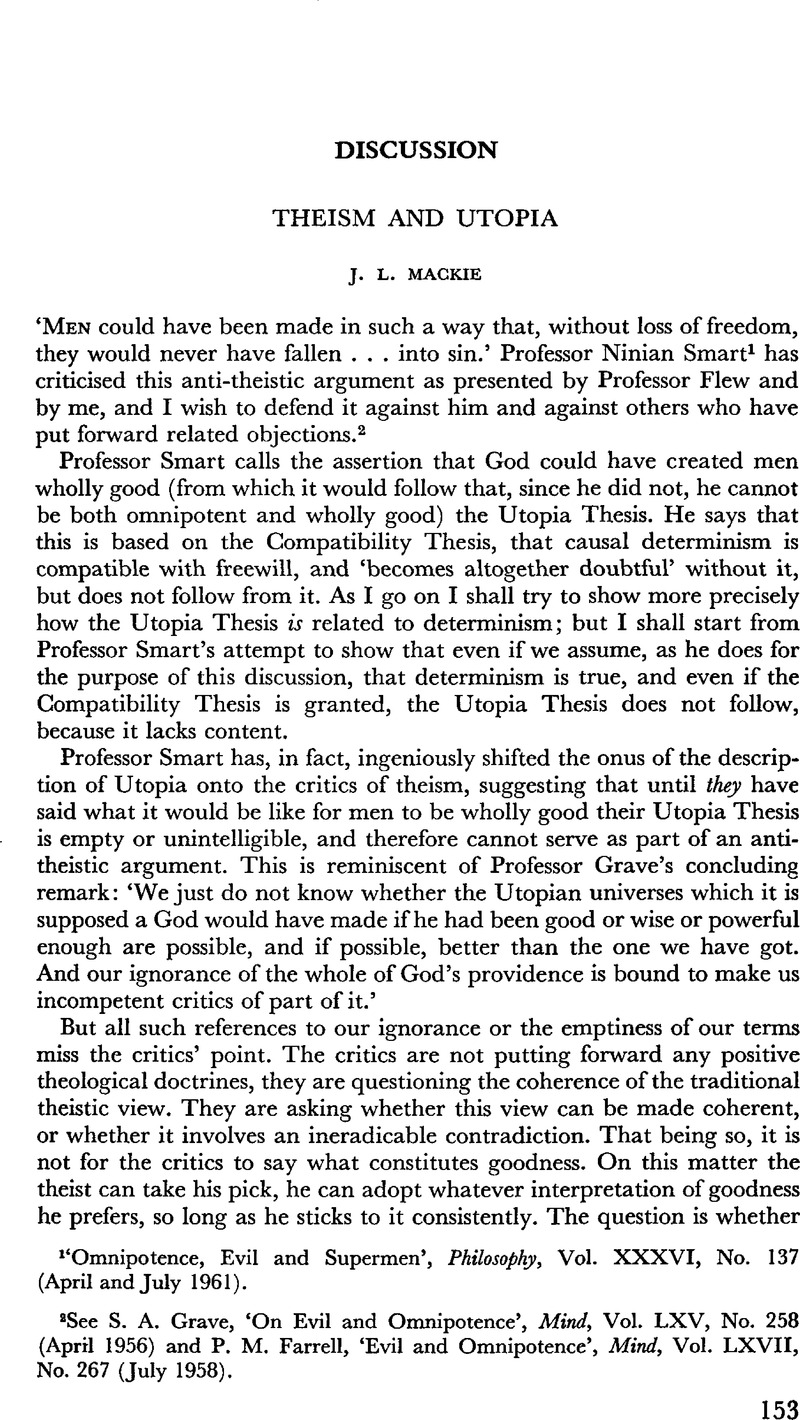Article contents
Theism and Utopia
Published online by Cambridge University Press: 25 February 2009
Abstract

- Type
- Discussion
- Information
- Copyright
- Copyright © The Royal Institute of Philosophy 1962
References
page 153 note 1 ‘Omnipotence, Evil and Supermen’, Philosophy, Vol. XXXVI, No. 137 (April and July 1961).Google Scholar
page 153 note 2 See Grave, S. A., ‘On Evil and Omnipotence’, Mind, Vol. 65, No. 258 (04 1956)CrossRefGoogle Scholar and Farrell, P. M., ‘Evil and Omnipotence’, Mind, Vol. 67, No. 267 (07 1958).Google Scholar
page 154 note 1 Examined in my article, ‘Evil and Omnipotence’, Mind, Vol. LXIV, No. 254 (April 1955), esp. pp. 208–209.Google Scholar
page 154 note 2 Op. cit. pp. 203–205.
page 156 note 1 Grave, , op. cit. p. 260;Google ScholarFarrell, , op. cit. pp. 401–402.Google Scholar
page 156 note 2 Thus Father Farrell says, ‘If, however, they are to manifest this corruptible good, they must be corruptible and they must sometimes corrupt. If they did not they would not be corruptible but incorruptible.’ Similarly he argues that contingent being is such that it can not- be, and therefore, since he has identified evil with not-being, that evil is ‘a necessary consequence of contingency’. But of course all that follows directly is that a contingent being must be able to be evil; if his conclusion is to follow, he must be assuming also that if a thing is able to be evil it must actually be evil sometimes. Professor Grave, on the contrary, says, ‘The point of the theist's reply is that moral evils are not necessary, but necessarily possible, consequences of freedom.’
page 157 note 1 Op. cit. p. 261. Both the actual words used in this passage and its context would suggest that Professor Grave is here denying not this step but the further step discussed under (iii) below, but he does not distinguish these steps from one another and I think that if he did he would want to oppose each of them.
page 157 note 2 This difficulty is forcefully presented, for example, by DrEwing, A. C., Second Thoughts in Moral Philosophy, pp. 176–179.Google Scholar
page 157 note 1 ‘There is … a logical impossibility in God's making him freely choose the good …’ (p. 260). Similarly he speaks of a choice which ‘might have been made differently by the same man in the same circumstances, so that it is not one which he could with concealed manipulation have been made to make, either at the time or at his beginning’ (p. 260, my italics).
- 6
- Cited by


